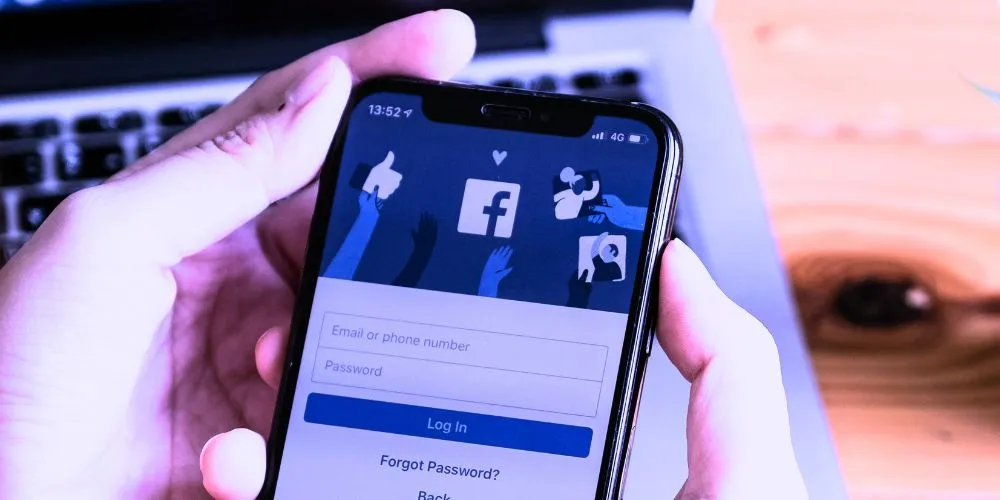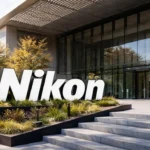In the 2016 U.S. Presidential Election, Facebook found itself at the center of a controversy regarding its role in disseminating misinformation. With over two billion active users by that time, the platform had become one of the most powerful information-sharing tools. However, it also became a conduit for false and misleading content, including propaganda and fake news that may have influenced voters.
This case study explores how misinformation spread on Facebook during the election, the platform’s challenges in controlling it, and the broader implications for democracy and social media governance.
Facebook’s Growth and Influence in the Media Landscape
By 2016, Facebook had become a global platform, transforming the way information is consumed and shared. Traditional news outlets no longer hold a monopoly on information. Instead, millions of users could share stories and opinions at unprecedented speed. Facebook’s algorithm, which prioritized engaging content, significantly shaped the information people encountered on the platform.
The Shift from Traditional Media
The rise of social media platforms, such as Facebook, has led to a fundamental shift in the media landscape. Instead of relying on newspapers, TV, or radio, people turned to Facebook for their news consumption, often relying on shared articles and posts from friends and family. This democratization of information dissemination came with risks, as it allowed for unchecked narratives to flourish.
Algorithmic Content Prioritization
Facebook’s news feed algorithm was designed to promote content that garnered more likes, shares, and comments. While this increased user engagement, it also made the platform susceptible to the spread of sensational, emotionally charged, and often inaccurate content. Posts with misleading headlines or conspiracies often went viral faster than verified news, creating an environment ripe for misinformation.
User-generated Content and Personalization
As a platform built on user-generated content, Facebook allows anyone to share stories, opinions, and news articles without undergoing traditional editorial processes. This freedom of sharing content contributed to the spread of false information, especially since Facebook’s algorithm personalized news feeds, showing users content aligned with their existing beliefs, thereby further reinforcing misinformation.
The Role of Misinformation in the 2016 Election
The 2016 election saw an unprecedented rise in misinformation circulating on Facebook. False news stories, conspiracy theories, and misleading advertisements flooded users’ feeds, creating confusion and polarization. Misinformation often originates from foreign actors, malicious domestic organizations, and individuals looking to manipulate public opinion.
Proliferation of Fake News
One of the most alarming trends during the election was the proliferation of fake news articles. Websites with misleading or entirely fabricated stories garnered millions of views, and these stories were widely shared on Facebook. Articles claiming that Pope Francis endorsed Donald Trump or that Hillary Clinton sold weapons to ISIS were completely false but gained traction on the platform.
Clickbait and Sensationalism
Much of the fake news circulating on Facebook took the form of clickbait—headlines designed to attract attention and encourage users to click and share, regardless of the accuracy of the content. Clickbait stories generated significant revenue through advertising, incentivizing producers of fake news to create more misleading content.
Disinformation Campaigns
Misinformation on Facebook was not always accidental or organic. There were concerted efforts by foreign entities, particularly Russian operatives, to sow discord and influence voter opinions through disinformation campaigns. The Internet Research Agency (IRA), a Russian organization, created thousands of fake Facebook accounts to promote divisive content and manipulate the political discourse.
Polarization and Echo Chambers
Facebook’s algorithm inadvertently contributed to the polarization of political opinions by creating echo chambers. Echo chambers are environments where users are only exposed to information and opinions that align with their beliefs. In these spaces, misinformation spread more easily as users reinforced each other’s views, making it challenging for factual information to gain traction.
Filter Bubbles
The phenomenon of filter bubbles, where users only see content that algorithms deem relevant based on their past behavior, exacerbated the spread of misinformation. Facebook’s personalization tools ensured that users remained insulated within ideological bubbles, reducing exposure to opposing viewpoints and critical thinking.
Facebook’s Response to Misinformation
In the wake of the 2016 election, Facebook faced criticism for its inability to control the spread of misinformation. The company initially downplayed the impact of fake news on its platform, but mounting evidence forced it to acknowledge the problem and take corrective action.
Initial Denial and Downplaying the Issue
Immediately after the election, Facebook CEO Mark Zuckerberg famously stated that the idea that misinformation on Facebook had influenced the election was “crazy.” This statement reflected the company’s initial reluctance to take responsibility for its platform’s role in the election. However, this stance quickly shifted as the scale of the issue became apparent.
Public Backlash
The public, policymakers, and media outlets responded with outrage at Facebook’s failure to prevent the spread of misinformation. Critics argued that the platform’s reach and influence made it complicit in shaping the election’s outcome, whether intentional or not. The company’s initial dismissal of the problem only fueled the backlash.
Introduction of Fact-Checking Partnerships
Facebook introduced fact-checking partnerships with third-party organizations to combat the spread of misinformation. These fact-checkers reviewed flagged content, labeling false or misleading information to help users identify inaccuracies. However, critics argued that this approach was too slow and did not address the root of the problem.
Flagging Misinformation
When users shared content flagged as misleading or false by fact-checkers, Facebook began showing warning labels, notifying users of the information’s inaccuracy. Although this system aimed to reduce the spread of misinformation, it was often met with resistance from users who felt their opinions were being censored.
Limits of Fact-Checking
While fact-checking partnerships were a step in the right direction, they were limited in scope. Fact-checkers can only review a small portion of the vast amount of content shared on Facebook daily. Moreover, many users ignored the warnings or continued to share flagged content, reducing the system’s effectiveness.
The Broader Implications for Democracy and Social Media
The 2016 election demonstrated the significant influence of social media platforms, such as Facebook, on political outcomes. Misinformation on Facebook not only eroded trust in democratic institutions but also highlighted the ethical dilemmas surrounding content moderation and the role of private companies in controlling public discourse.
Erosion of Trust in Institutions
Misinformation and disinformation on Facebook contributed to a decline in trust in traditional institutions, including the media, government, and electoral processes. Many users who encountered false stories on the platform questioned the credibility of mainstream news outlets, leading to widespread skepticism and cynicism.
Undermining of Democratic Processes
By amplifying false narratives and divisive content, Facebook unintentionally undermined democratic processes. The spread of misinformation made it harder for voters to make informed decisions, potentially skewing the election outcome. This raised severe concerns about the integrity of future elections in the digital age.
Ethical Questions for Social Media Companies
The 2016 election raised difficult ethical questions for Facebook and other social media platforms. Should private companies be responsible for policing content on their platforms, and to what extent? How can companies balance the need for free expression with the responsibility to prevent harm caused by misinformation?
Content Moderation Challenges
Content moderation on a platform as large as Facebook presents significant challenges. With billions of pieces of content shared daily, identifying and removing false information is a monumental task. Facebook’s reliance on algorithms to moderate content has been criticized for being reactive rather than proactive, often failing to address problems before they spread.
Free Speech vs. Accountability
Facebook’s role as a platform for free speech has been a cornerstone of its identity. However, the 2016 election raised questions about where to draw the line between free speech and accountability for spreading harmful content. Should Facebook have stricter guidelines for what can be shared, or would that risk stifling legitimate discourse?
Facebook’s Long-Term Reforms and Ongoing Challenges
Since the 2016 election, Facebook has implemented numerous reforms aimed at reducing the spread of misinformation. However, the effectiveness of these measures remains in question as misinformation continues to plague the platform, especially during significant political events.
Increased Transparency and Political Ads
One of Facebook’s most significant reforms was the introduction of transparency measures for political ads. The company now requires political advertisers to verify their identity and location, and all ads are stored in a searchable archive for public review.
Real-time Fact-checking and AI
Facebook has also invested in real-time fact-checking and artificial intelligence (AI) tools to detect and reduce the spread of misinformation. These systems aim to catch misleading content before it goes viral, although their effectiveness is still limited.
Continuing Struggles with Misinformation
Despite these reforms, Facebook continues to face criticism for handling misinformation. The platform remains a key battleground for false information, especially during major events like the 2020 U.S. election and the COVID-19 pandemic. Facebook’s struggle to balance free speech and content moderation remains a significant challenge.
Global Implications
Facebook’s role in spreading misinformation extends beyond the U.S., with similar issues arising in elections and political movements worldwide. From the Brexit referendum to elections in Brazil and India, the platform has been used to manipulate public opinion globally, raising questions about the responsibilities of multinational tech companies.
Conclusion
Facebook’s role in spreading misinformation during the 2016 U.S. election is a case study of social media’s profound impact on democracy. The platform’s algorithm-driven content prioritization and inadequate content moderation allowed false information to spread unchecked. While Facebook has implemented reforms since 2016, the challenges of controlling misinformation on such a large scale remain.
As social media continues to shape political discourse, the lessons learned from this period will be crucial in guiding future efforts to ensure the integrity of democratic processes and the accountability of tech companies.





